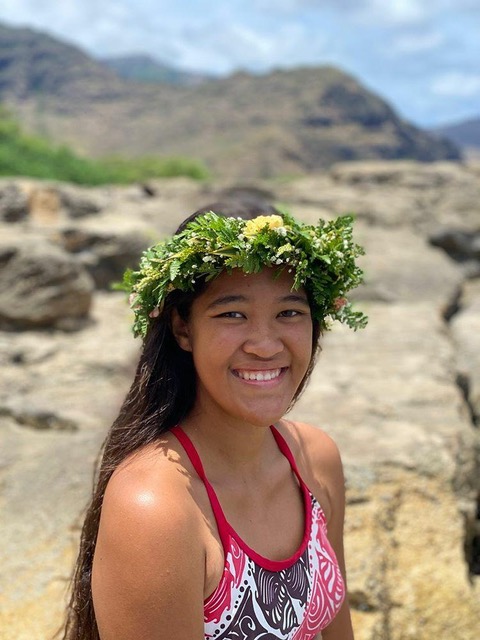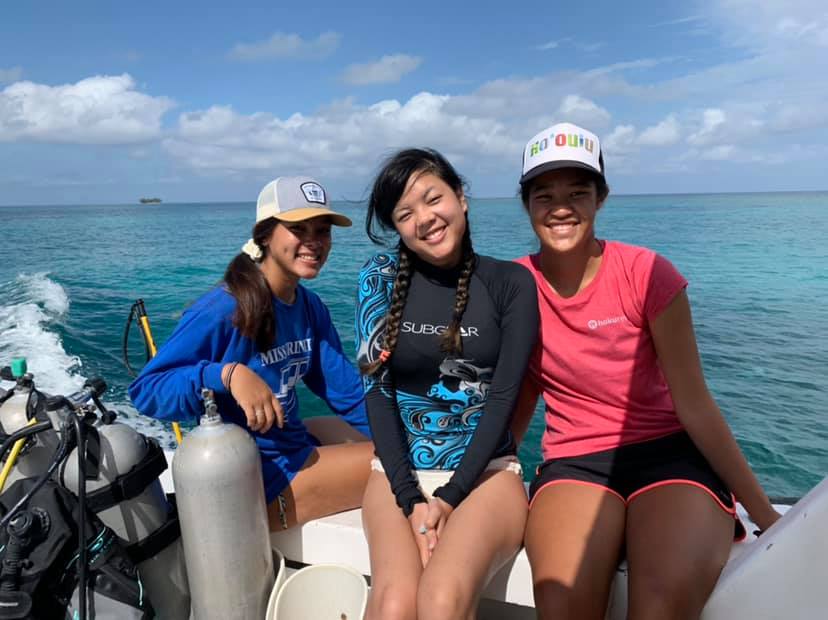
What have you been up to since attending the Ocean Matters program?
I first joined Ocean Matters in 2017 (Hawaiʻi) and participated again in 2019 (Honduras). Since then, I have just completed my AA degree in Liberal Arts at Leeward Community College and am transferring to the University of Hawaiʻi at Mānoa to major in Natural Resources and Environmental Management with a focus in Coastal Ecology and Management. Lately, I have been working on my photography and just being out in nature.
What did you receive from your involvement in Ocean Matters that will stay with you moving forward?
Ocean Matters was truly a life-changing experience. It brought many opportunities that I would never have experienced if not for finding this program. The Honduras trip was my third time traveling out of the country and it was my first time traveling alone. Aside from meeting people with common goals, I was able to get scuba certified, something I never thought I would ever be doing. The biggest impact that I’ve gained from Ocean Matters was meeting people from all over the world. Ocean Matters has brought us together and within that one week, we felt like family.
What do you wish everyone knew about the ocean or could experience in the ocean?
The ocean is one of the most powerful things on earth and should be highly respected. My number one rule is to never turn your back to the ocean because sometimes, it may be unpredictable. Even though it holds so much power, it is such a beautiful thing. My favorite experience in the ocean (besides diving) is going snorkeling on a calm day when out of nowhere it begins to rain, and the dolphins come closer to play. There is nothing more magical than hearing only the rainfall and dolphin whistles. When you dive under to stare at the falling rain while having the dolphins swimming around you is such a surreal experience.
In your opinion, what’s the biggest threat to the world’s oceans, and what is something we can do about it?
Unfortunately, there are countless threats facing our ocean today, but I think the biggest one might revolve around plastics and pollution. Soon, we will have more plastic in the ocean than we have fish. From large pieces such as nets and fishing gear to the smallest of microplastics, they all affect marine life. Sadly, it is becoming more and more common to see animals ingesting plastics. Various beach clean-ups are in place but for every piece that gets picked up, there are more taking its place in the ocean. The solution is simple, using fewer plastics and switching to more eco-friendly alternatives.
How has your unique perspective helped inform your passion for the ocean?
Living in the middle of the Pacific Ocean, I have always been fascinated by the mysteries and wonders the ocean has to offer. I live three houses from the beach, and I was lucky enough to have the opportunity to walk to the beach every day to enjoy its beauty.
Since I was younger, the ocean has been changing whether it is the fish size or diversity, plastics, sedimentation, even coral bleaching. Hawaiʻi is separated into land divisions called Ahupuaʻa and all the resources needed were within this land division from the mountains to the sea. We had fishponds, which were a sustainable and natural way of fishing. In modern times, resources are no longer managed in that way even though it worked so well in the past. Times are changing and so are perspectives.
It is important to think about things not only where you live but other places as well. For example, the different impacts of mangroves in different areas of the world. In Utila, mangroves are native and fish nurseries and serves as coastal protection. There are efforts in place to save and propagate the mangrove since it is crucial in their ecosystems. Here in Hawaiʻi, our mangrove is an invasive species and is destroying and overtaking our shorelines and fishponds. We have countless efforts working towards removing them.

